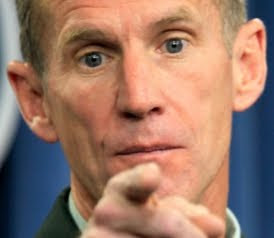Ultra Catholic Madame Nhu, Dragon Lady of South Vietnam and Burning Buddhist Monks Delight
Diem and the Nhus were Catholic. Most Vietnamese were Buddhists. No political opposition parties were allowed in South Vietnam. As opposition to the government increased, more Vietnamese became attracted to Buddhism. Ngo Dinh Thuc, brother of President Diem, was the Catholic Archbishop of Hue, the center of Buddhism in Vietnam. In early 1963 there was a celebration in Hue to commemorate Thuc’s twenty-five years as bishop. Both Vietnamese and Roman Catholic flags were flown, which violated a law which permitted only the Vietnamese flag be flown in public. This event was followed by Buddha’s 2,587th birthday, and the Buddhists in Hue wanted to fly their flag. When the Diem government prohibited this, thousands of Buddhists demonstrated in protest. Nine were killed when government troops fired into the demonstrators. U. S. Ambassador William Trueheart urged Diem to make peace with the Buddhists by admitting fault, paying indemnity, and issuing a public apology for the incident. Instead the government blamed the Buddhists’ death on the Viet Cong. When the Buddhists continued to demonstrate, the government banned demonstrations. The Buddhist crisis had begun, and escalated.
When the government response to their grievances proved unsatisfactory, Buddhist monks and nuns began a series of hunger strikes. Rioting in Hue turned violent and government troops fought back. Anti-government demonstrations by the Buddhists spread throughout the country. In Saigon, on June 11 1963, an old Buddhist monk squatted on the street near the Xa Loi pagoda. Gasoline was poured over his head. The monk lit a match and set himself aflame. Thich Quang Duc was the first of seven Buddhists to protest the Diem regime with suicide by immolation.
The US was stunned by the Buddhist suicides, and urged Diem to make some sort of settlement. Showing she was made of sterner stuff, Madame Nhu called for beating the monks “ten times over” and referred to the suicides as a “monk barbecue show.” Not to be outdone, Nhu commented “If the Buddhists wish to have another barbecue I will be glad to supply the gasoline and a match.” Pressured by the Americans, Diem finally met with Buddhist leaders. A communiqué was issued and signed by Diem. When Madame Nhu learned of this she accused Diem of cowardice and called him a jellyfish for even negotiating.
Positions hardened. The Buddhist protests, originally religious, became overtly political. Their support increased. Nhu claimed the Buddhists were rebels and their movement was communist infiltrated. Diem and the Nhus wanted to crush the Buddhists but were restrained by the Americans, who professed a belief in religious freedom and urged the government to reform. The crisis extended into the fall, and worsened. The Nhus complained Diem was too soft on the Buddhists. There were rumors both the military and Nhu were planning anti-Diem coups.
Nhu considered the Vietnamese Special Forces his private army. On August 21 1963, he ordered hundreds of them to attack the Xa Loi pagoda with guns, tear gas, and grenades. The Buddhists barricaded themselves inside. After two hours of fighting over 100 monks were arrested and taken away. Madame Nhu grated an interview the day after the pagoda raid. She “was in a state of euphoria, chattering like a schoolgirl after a prom.” She told the reporter the government had crushed “the Communist-Buddhists” and referred to the event as “the happiest day of my life since we crushed the Binh Xugen in 1955.”
After long deliberation, our Buddhist Student Union in Saigon joined with the leadership of the National Buddhist Congregation in its struggle for religious liberty, endorsing their open letter and petition to the government:
The presidential decree banning the Buddhist flag must be rescinded.
Everyone must be granted the same freedoms as those guaranteed the Catholics under the French regime, including freedom to assemble. The National Buddhist Congregation must enjoy the same status as the Catholic Church and not be considered merely an association.
The arrests of Buddhists must stop.
Buddhists must be given the freedom to practice the Buddha's teachings.
The families of those who were crushed by the tanks must be compensated, and those who did the killing must be arrested and brought to trial.
The High Patriarch of the National Buddhist Congregation, Thay Tinh Khiet, signed the petition and added these five principles:
Buddhists have never aimed at overthrowing any regime. We only wish to change policies that discriminate against us.
Buddhists have no enemies. Our struggle is not against the Catholics but against discrimination. Buddhists never wish to fight another religion.
The Buddhist struggle for a fair religious policy is part of the struggle for social justice in all of Vietnam.
Buddhists vow to follow a nonviolent path, practicing the teachings of the Awakened One during the struggle itself. Because of our commitment to nonviolence, we Buddhists are ready to sacrifice ourselves in the spirit of understanding and love. We want more than just a change of policy. We want the spirit of love and understanding to inspire and transform the hearts and minds of all people, including those in government.
Buddhists will not let any political force make use of our struggle.
In the early morning hours of August 20, 1963, the army's special forces raided the most important strongholds of the Buddhist movement throughout the country and arrested more than 2,000 monks and nuns in their temples along with active Buddhist laypeople in their homes, including many of my friends. The police in Saigon ransacked Xa Loi Temple, An Quang Pagoda, and several other temples. One monk at Xa Loi, whom they thought was Thay Giac Duc, one of the most eloquent speakers for the Buddhist demonstrations, was beaten to death right on the spot.
http://www.library.vanderbilt.edu/central/Brush/MadamNhu.htm



Comments
Post a Comment